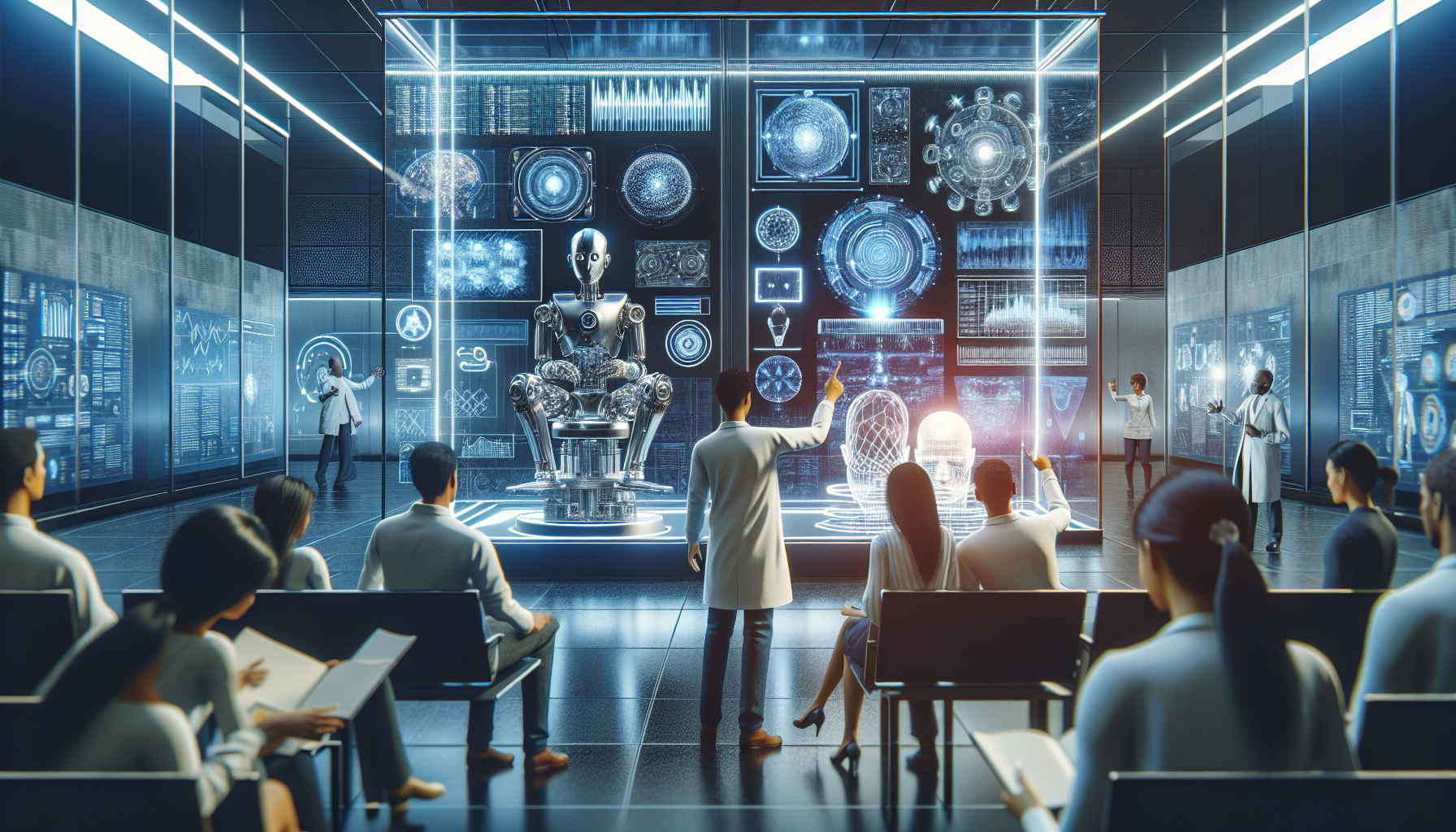
Quantum Computing and AI: Unleashing the Future of Innovation
August 18, 2025
Imagine a world where machines solve problems so complex that they defy current computational capabilities. This is not a scene from a science fiction movie; it is the promising horizon of quantum computing and artificial intelligence (AI) working in tandem. Together, they form a powerful duo poised to transform industries and redefine what technology can achieve.
The allure of quantum computing lies in its ability to handle calculations at speeds unimaginable with classical computers. Unlike traditional bits that exist in a binary state of either 0 or 1, quantum bits, or qubits, harness the peculiar properties of quantum mechanics, such as superposition and entanglement. This means a qubit can exist in multiple states simultaneously, radically enhancing computational power. When applied to AI, this capability promises to elevate machine learning algorithms to new heights, unraveling complex datasets with an efficiency that could revolutionize fields ranging from healthcare to finance.
AI, with its prowess in pattern recognition and decision-making, stands to benefit enormously from the computational might of quantum computing. Consider the realm of drug discovery, where identifying potential compounds involves sifting through an astronomical number of molecular combinations. Here, quantum-powered AI models could expedite the discovery process by rapidly analyzing vast datasets, identifying promising candidates that would take traditional computers years to uncover. This accelerated pace can lead to new treatments and cures, ultimately saving lives.
The financial sector is another arena where this combination could drive seismic shifts. Financial markets generate colossal amounts of data every second, and identifying trends within this ocean of information is no small feat. Quantum-enhanced AI could dissect these datasets with unprecedented speed and precision, providing insights that allow investors to make more informed decisions. This level of analysis could unlock new strategies, optimize portfolios, and manage risks more effectively than ever before.
Yet, the potential of quantum computing and AI extends beyond commercial applications. Environmental challenges, such as climate change, require innovative solutions that can model complex systems and predict outcomes with high accuracy. Quantum AI could simulate the Earth's climate with greater detail, offering insights into the impact of various mitigation strategies and guiding global efforts to combat environmental degradation.
Despite its promise, the integration of quantum computing and AI is not without challenges. Quantum machines are still in the nascent stages of development, with practical, large-scale quantum computers yet to become a reality. The technology requires precise conditions to operate, such as extremely low temperatures and isolation from external interference, making it both costly and technically demanding. Moreover, the complexity of developing algorithms that can harness quantum power effectively is immense, requiring interdisciplinary expertise and new theoretical frameworks.
Nevertheless, the momentum in this field is undeniable. Research institutions and tech giants are investing heavily in quantum technologies, recognizing the transformative potential they hold. These organizations are not just developing the hardware but also the software and algorithms that will enable AI to leverage quantum capabilities fully. As these efforts progress, the barriers to widespread adoption are expected to diminish, paving the way for a new era of technological advancement.
Critics may argue that the marriage of quantum computing and AI is fraught with ethical implications. The prospect of machines with such enhanced cognitive capabilities raises questions about privacy, security, and the potential for misuse. However, these concerns should not stifle innovation but rather guide it. By fostering an environment where ethical considerations are integral to technological development, society can harness these tools for the greater good while mitigating risks.
The synergy of quantum computing and AI represents more than just a technological breakthrough; it is a paradigm shift that could redefine the boundaries of human knowledge and capability. As we stand on the brink of this new frontier, the question is not whether we will unlock these possibilities, but how we will choose to wield them.
What responsibilities do we bear in ensuring that this powerful combination is used to uplift society at large? How will we navigate the ethical landscape to ensure that this technological leap benefits all? These are the questions that will shape the future of innovation as quantum computing and AI converge to transform our world.


